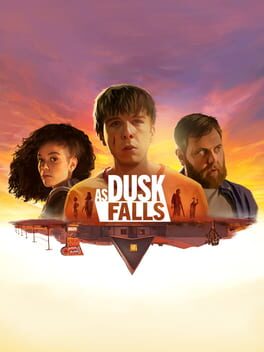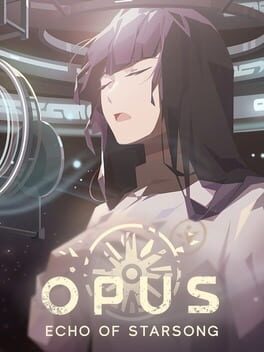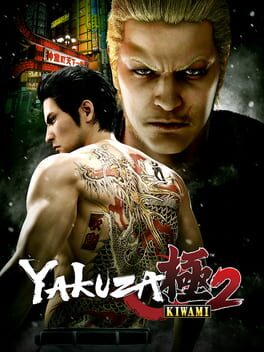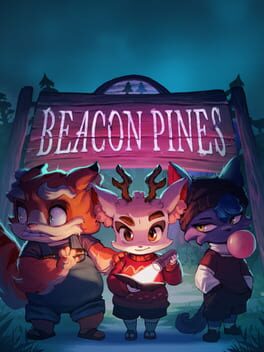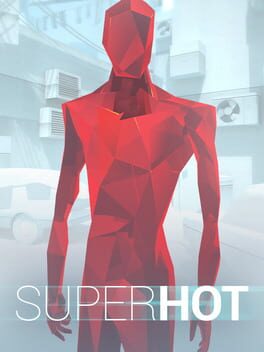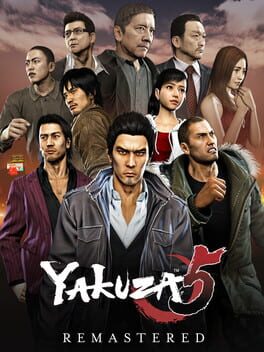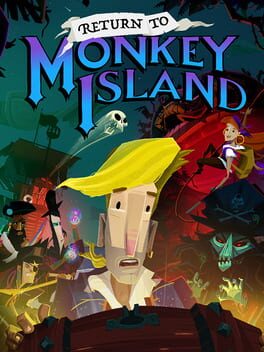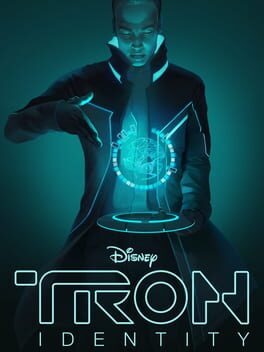Qreedence
2022
What immediately drew me in to this world was the scope of it all. It feels like this universe is huge, and you are only ever traversing a very small part of it on a journey that in the grand scheme of things is probably miniscule, but is packed with an emotional resonance that rivals the best of them.
I won't go into specifics regarding the story, but you find yourself with a crew of interesting characters travelling around the solar system and just soaking in the lore, be it through dialogue, through item descriptions or through flashbacks.
The main gameplay loop is you getting a set of coordinates, slowly making your way there with a few stops on the way to harvest resources and fuel to keep your space ship going and upgraded, and when you get there you either get some dialogue or you get a cave exploration segment. The gameplay hooks are barely worth mentioning; there are some light puzzle elements, some light adventure game mechanics (use item A on item B to progress), some light traversal and exploration as you make your way through the caves and some mini-games akin to lockpicking.
The gameplay is not why this game is good. It's all about the story - a story which would fall absolutely flat if you don't buy in to the anime-isms of the characters. I'm predisposed to like it, but I know that doesn't apply to everyone.
I won't go into specifics regarding the story, but you find yourself with a crew of interesting characters travelling around the solar system and just soaking in the lore, be it through dialogue, through item descriptions or through flashbacks.
The main gameplay loop is you getting a set of coordinates, slowly making your way there with a few stops on the way to harvest resources and fuel to keep your space ship going and upgraded, and when you get there you either get some dialogue or you get a cave exploration segment. The gameplay hooks are barely worth mentioning; there are some light puzzle elements, some light adventure game mechanics (use item A on item B to progress), some light traversal and exploration as you make your way through the caves and some mini-games akin to lockpicking.
The gameplay is not why this game is good. It's all about the story - a story which would fall absolutely flat if you don't buy in to the anime-isms of the characters. I'm predisposed to like it, but I know that doesn't apply to everyone.
2017
I never did get into the Yakuza series when it first came out, but I jumped aboard the hype train with Yakuza 0 and Yakuza Kiwami when they first released in 2017. That said, I haven't really touched the series since then and have decided to take upon myself the herculean task of getting up to speed with the series.
And what a good game to pick back up to keep the series going. I was a little hazy on the details of the previous two games, seeing as it has been over 5 years since I last played those, but it didn't take long for me to get not just up to speed with the characters and the plot, but to actually get really invested.
Rival clans, the korean Jingweon mafia, standout characters like Majima and all the goofy side quests made me just want to devour this game, and I did so in a little under a week. I was thinking about speeding through the games to get caught up all the way to Like A Dragon (7), but after spending some time in this game's versions of Kamurocho and Sotenbori I couldn't help myself; I started going after completing all the minigames and side quests and just couldn't get enough.
It was also partly because I know of the potential slump that awaits me in the remastered collection (Yakuza 3, 4 and 5) which are from the looks of things definitely not as well polished as Kiwami 2. So I decided to enjoy my stay in this game and not rush towards the "un-Kiwami'd" games.
Overall, the main story and side quests were wonderful, as expected. What I didn't expect though was to get completely engrossed in the Cabaret Club minigame, where you're basically playing a club management game in short spurts, levelling up your hostesses and doing some more sidequests with them and competing against rival clubs. This part of Yakuza Kiwami 2 could easily be broken out into a standalone game and I would definitely be into it!
Now then, on to Yakuza 3.
And what a good game to pick back up to keep the series going. I was a little hazy on the details of the previous two games, seeing as it has been over 5 years since I last played those, but it didn't take long for me to get not just up to speed with the characters and the plot, but to actually get really invested.
Rival clans, the korean Jingweon mafia, standout characters like Majima and all the goofy side quests made me just want to devour this game, and I did so in a little under a week. I was thinking about speeding through the games to get caught up all the way to Like A Dragon (7), but after spending some time in this game's versions of Kamurocho and Sotenbori I couldn't help myself; I started going after completing all the minigames and side quests and just couldn't get enough.
It was also partly because I know of the potential slump that awaits me in the remastered collection (Yakuza 3, 4 and 5) which are from the looks of things definitely not as well polished as Kiwami 2. So I decided to enjoy my stay in this game and not rush towards the "un-Kiwami'd" games.
Overall, the main story and side quests were wonderful, as expected. What I didn't expect though was to get completely engrossed in the Cabaret Club minigame, where you're basically playing a club management game in short spurts, levelling up your hostesses and doing some more sidequests with them and competing against rival clubs. This part of Yakuza Kiwami 2 could easily be broken out into a standalone game and I would definitely be into it!
Now then, on to Yakuza 3.
2022
I was not at all prepared for how this game would grab me. I fired it up on GamePass in the evening, thinking I would try it out for like an hour or so and instead wound up sitting glued to the screen until 3 AM.
This text heavy visual novel-style of RPG is not really my jam traditionally, but I might have to go and check out Disco Elysium after playing through this, seeing as there have been quite a few comparisons between the two.
When I sensed the endgame approaching I desperately wanted the game to not be over. Luckily, even after completing all the major storylines the first chapter of the free DLC had been released, so I got to play through that as well to extend my session with this game. Will check back in October for the second chapter, without a doubt.
This text heavy visual novel-style of RPG is not really my jam traditionally, but I might have to go and check out Disco Elysium after playing through this, seeing as there have been quite a few comparisons between the two.
When I sensed the endgame approaching I desperately wanted the game to not be over. Luckily, even after completing all the major storylines the first chapter of the free DLC had been released, so I got to play through that as well to extend my session with this game. Will check back in October for the second chapter, without a doubt.
2021
The first 20 or so hours of this game were like crack to me, I just couldn't stop playing to fill out that ever-expanding checklist of things to do to unlock more game mechanics, more weapons, more characters and more levels to do what is essentially some twin-stick shooting but with only one stick.
The gameplay of your weapons automatically firing off as you walk around felt kind of like a tower defense game, except you are the towers with all the weapons you're carrying around. Levelling up and getting stronger to the point of being a "whirlwhind of death" as I've seen it described is a very satisfying feeling.
When you reach the point of not being afraid of not completing a run, but instead patiently waiting to upgrade your character with a sense of inevitable victory the game kind of lost a bit of its charm, and it felt kind of like going through the motions of doing more and more runs just to keep unlocking things, but it kept me playing for about 35 hours before I felt like I had gotten my fill.
There have been two DLC-packs released that I've not checked out, maybe I'll play those in the future if I get the itch.
2022
I decided to check this game out kind of on a whim. I didn't know too much about it, other than the fact that it's on the shorter side. So I finished it in one 6 hour sitting and I'm very happy I did so.
It starts off with raindeer boy Luka mourning at his father's grave, slowly introducing the setting and the characters we'll be interacting with. All presented in a sort of Winnie the Pooh-esque illustrated storybook kind of fashion. Fitting, for a game that is in part a visual novel type of game (but also an adventure game).
My interest perked up when I realized what was going on structurally with the game. It's not just a linear story told to completion (well, kind of, but kind of not); akin to something like Detroit: Become Human there are a number of branching paths the story takes, and you unlock more options for the branches the more you explore the world. For example, walking around and exploring in Branch C might unlock a new verb to try in Branch A.
My critique of this is that while it does work well enough, it could get kind of messy sometimes to retain the knowledge of what exactly has happened in any given timeline. Questions like "Wait, did x happen in this timeline?" arose quite frequently.
Walking down all these different paths to ultimately unspool the threads of the main mystery was satisfying though, enough so that I wanted to see the story through to its conclusion in a single sitting as I said before.
It starts off with raindeer boy Luka mourning at his father's grave, slowly introducing the setting and the characters we'll be interacting with. All presented in a sort of Winnie the Pooh-esque illustrated storybook kind of fashion. Fitting, for a game that is in part a visual novel type of game (but also an adventure game).
My interest perked up when I realized what was going on structurally with the game. It's not just a linear story told to completion (well, kind of, but kind of not); akin to something like Detroit: Become Human there are a number of branching paths the story takes, and you unlock more options for the branches the more you explore the world. For example, walking around and exploring in Branch C might unlock a new verb to try in Branch A.
My critique of this is that while it does work well enough, it could get kind of messy sometimes to retain the knowledge of what exactly has happened in any given timeline. Questions like "Wait, did x happen in this timeline?" arose quite frequently.
Walking down all these different paths to ultimately unspool the threads of the main mystery was satisfying though, enough so that I wanted to see the story through to its conclusion in a single sitting as I said before.
Ryu Ga Gotoku Studio tried something really different with this entry in the Yakuza series, and it definitely paid off. Sure, there are some growing pains, but given how much new stuff there is in here I am more than willing to overlook some flaws.
The turn-based combat works pretty well, there is some depth to it but at points it almost feels like it's stuffed to the brim with too much stuff. Let's call it a first draft. But the combat isn't why I absolutely adore this game.
The Yakuza series has always hooked me with its characters, its detailed locations and the tonal whiplash between soapy melodrama in the main story and the goofy ass shit happening in the side content. This time around, it feels like both of those have been amped up. The main story packs a real emotional punch, and with the new protagonist (Kasuga Ichiban) it feels like the silliness has reached new peaks.
Kiryu has always been a brooding, stoic character with a heart of gold. Kasuga, similarly, always tries to do the right thing, but the characters couldn't be more different. Kasuga is what you get when you take a typical shonen anime protagonist and put him in a (semi-)realistic setting. Of course, all pretense of realism goes out the door a few hours into the game when Kasuga starts seeing his adventure as him playing real life Dragon Quest (which is only really in effect during combat).
There is also a staggering amount of side content in this game. The everpresent substories, while fewer in number, are significantly beefed up. There's a longer story arc in each of them, and most of the substories require you going back to a location a few times to see the story progress.
I only really have on complaint with the game, and that is a pacing issue that occurred in the late game. Combat had been fairly breezy up until that point, with me keeping up with the enemies' levels pretty evenly. And then, out of nowhere, I hit a boss that was 15 levels higher and the game recommending me to just grind it out, so I had to spend a few hours just mindnumbingly grinding enemies in a battle arena.
On the whole though, I really love this game and I'm super excited to see where the story goes in the coming installments.
The turn-based combat works pretty well, there is some depth to it but at points it almost feels like it's stuffed to the brim with too much stuff. Let's call it a first draft. But the combat isn't why I absolutely adore this game.
The Yakuza series has always hooked me with its characters, its detailed locations and the tonal whiplash between soapy melodrama in the main story and the goofy ass shit happening in the side content. This time around, it feels like both of those have been amped up. The main story packs a real emotional punch, and with the new protagonist (Kasuga Ichiban) it feels like the silliness has reached new peaks.
Kiryu has always been a brooding, stoic character with a heart of gold. Kasuga, similarly, always tries to do the right thing, but the characters couldn't be more different. Kasuga is what you get when you take a typical shonen anime protagonist and put him in a (semi-)realistic setting. Of course, all pretense of realism goes out the door a few hours into the game when Kasuga starts seeing his adventure as him playing real life Dragon Quest (which is only really in effect during combat).
There is also a staggering amount of side content in this game. The everpresent substories, while fewer in number, are significantly beefed up. There's a longer story arc in each of them, and most of the substories require you going back to a location a few times to see the story progress.
I only really have on complaint with the game, and that is a pacing issue that occurred in the late game. Combat had been fairly breezy up until that point, with me keeping up with the enemies' levels pretty evenly. And then, out of nowhere, I hit a boss that was 15 levels higher and the game recommending me to just grind it out, so I had to spend a few hours just mindnumbingly grinding enemies in a battle arena.
On the whole though, I really love this game and I'm super excited to see where the story goes in the coming installments.
2016
2019
My opinion of Yakuza 5 kind of went a little all over the place. I thought the multiple protagnists, an idea introduced in Yakuza 4, worked very well the last time around. For a long time, my opinion was that it didn't work as well in this game just due to the sheer amount of time each character's story takes to do, not to mention all their substories and the entires side story that RGG Studios crafted for each character.
Pacing is a key factor here. The reason I thought the multiple protagonists worked so well in Yakuza 4 was that we got a few hours to get acquainted with some new characters, learned a bit about their part of the world, got to see what ultimately brought them to the point where they were crossing paths with the other characters.
But the pace was pretty brisk - you never lingered on one character for too long, where as in Yakuza 5 I think I averaged out at almost 15 hours per character. And the way these stories were structured, the early chapters of each character's story was pretty slow going, only to pick up massive amounts of momentum as you started approaching the end of that character's arc. That meant that just as things were getting interesting, narratively, you were whisked away and started the cycle anew, with a pace that was at times agonizingly slow.
I would be remiss not to mention that this is by far the best feeling and looking game in this trilogy of remasters, which certainly counts for something. It kept the moment to moment gameplay fun while I was a little bit pissed off at getting taken out of a story just as it was getting good.
If I had stopped playing before reaching the conclusion, I might have left with very negative feelings towards this game. But the final chapters, where 16 chapters worth of story culminated in a finale that was not afraid to take its time, dotting every i and crossing every t, made me do a 180 turn on my opinion. All of a sudden, the pace felt worth it. There are so many dangling plot threads when you reach the finale, and there's an intense feeling of satisfaction as you go around wrapping up all those loose ends. Every playable character gets a proper send-off with an amazing boss fight and satisfying character moments, and the post-credits scene was definitely worth sticking around for.
One thing that I could've done without though, was the 7 hour long rhythm game inserted into the middle of the game. Don't get me wrong, I was hyped when I realized that was where the game was going, but a rhythm game that never gets challenging and only has a selection of a few songs that you just endlessly repeat gets tiring very quickly, and it's pretty safe to say I definitely felt like the segment overstayed its welcome.
Pacing is a key factor here. The reason I thought the multiple protagonists worked so well in Yakuza 4 was that we got a few hours to get acquainted with some new characters, learned a bit about their part of the world, got to see what ultimately brought them to the point where they were crossing paths with the other characters.
But the pace was pretty brisk - you never lingered on one character for too long, where as in Yakuza 5 I think I averaged out at almost 15 hours per character. And the way these stories were structured, the early chapters of each character's story was pretty slow going, only to pick up massive amounts of momentum as you started approaching the end of that character's arc. That meant that just as things were getting interesting, narratively, you were whisked away and started the cycle anew, with a pace that was at times agonizingly slow.
I would be remiss not to mention that this is by far the best feeling and looking game in this trilogy of remasters, which certainly counts for something. It kept the moment to moment gameplay fun while I was a little bit pissed off at getting taken out of a story just as it was getting good.
If I had stopped playing before reaching the conclusion, I might have left with very negative feelings towards this game. But the final chapters, where 16 chapters worth of story culminated in a finale that was not afraid to take its time, dotting every i and crossing every t, made me do a 180 turn on my opinion. All of a sudden, the pace felt worth it. There are so many dangling plot threads when you reach the finale, and there's an intense feeling of satisfaction as you go around wrapping up all those loose ends. Every playable character gets a proper send-off with an amazing boss fight and satisfying character moments, and the post-credits scene was definitely worth sticking around for.
One thing that I could've done without though, was the 7 hour long rhythm game inserted into the middle of the game. Don't get me wrong, I was hyped when I realized that was where the game was going, but a rhythm game that never gets challenging and only has a selection of a few songs that you just endlessly repeat gets tiring very quickly, and it's pretty safe to say I definitely felt like the segment overstayed its welcome.
I've never been a die-hard fan of point & click adventure games, but somehow throughout the last few years I've ended up playing quite a few of them. The reasons most of them have for sticking are usually a combination of a story that's compelling enough to want to see through and puzzles that feel satisfying to solve.
Having said that, the plot in the previous Monkey Island games (of which I've played all) didn't really stick out in my memory at all. I could remember some vague things, like the characters and their broad characterizations, but as far as the events of the previous games go, it's all blank. And maybe that's ok.
The story this game tries to tell had me feeling kind of bummed out at the end of it, but after reflecting on it for some time I've come to appreciate just a tiny bit more.
Having said that, the plot in the previous Monkey Island games (of which I've played all) didn't really stick out in my memory at all. I could remember some vague things, like the characters and their broad characterizations, but as far as the events of the previous games go, it's all blank. And maybe that's ok.
The story this game tries to tell had me feeling kind of bummed out at the end of it, but after reflecting on it for some time I've come to appreciate just a tiny bit more.
2023
While Tron: Identity is a pretty brief experience, it certainly has a lot going for it. The characters were pretty well written, the art is fantastic and the story was interesting enough, but I felt like just as I was getting really into it and getting invested in the plot it just kind of... ended.
It does feature several branching paths and different possible outcomes, but I didn't feel compelled enough to play through the game again to see those.
It does feature several branching paths and different possible outcomes, but I didn't feel compelled enough to play through the game again to see those.
